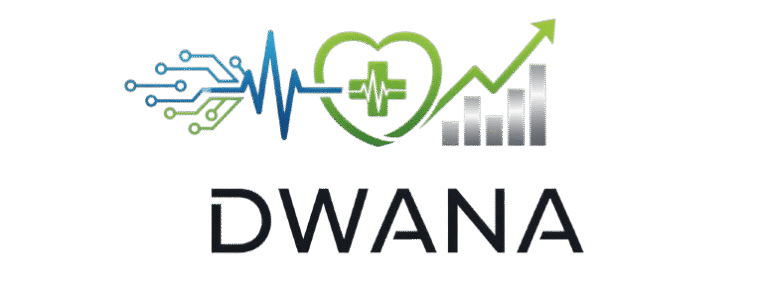AI in Healthcare: Revolutionizing Patient Outcomes and Operational Efficiency
Imagine a world where diseases are predicted before symptoms appear, where drug discovery is accelerated from years to months, and where every patient receives a personalized treatment plan tailored to their unique genetic makeup. This is not the plot of a science fiction novel; it is the new reality being forged by artificial intelligence in the medical field. The integration of AI healthcare applications is transforming every facet of the industry, from the front lines of diagnosis to the back offices of hospital administration. For investors, entrepreneurs, and business professionals globally, this represents one of the most significant technological and financial opportunities of the 21st century. This in-depth exploration will navigate the expansive landscape of AI in medicine, examining its most impactful applications, the profound benefits it delivers, and the critical considerations for its ethical and practical implementation. Understanding this revolution is key to recognizing the future of health and the immense potential it holds for improving lives and generating value.
The New Era of Medical Diagnosis and Imaging
One of the most mature and impactful areas for AI is in enhancing the accuracy and speed of medical diagnosis. By analyzing complex datasets that far exceed human capacity, AI algorithms are becoming indispensable partners to clinicians.
Radiology and Pathology: Seeing the Unseeable
AI-powered image analysis tools are revolutionizing radiology and pathology. These algorithms can scrutinize X-rays, MRIs, CT scans, and tissue slides with superhuman precision.
-
Early Detection: They can identify subtle patterns and anomalies indicative of diseases like cancer, often at stages too early for the human eye to detect. For instance, AI systems can spot early signs of lung cancer in CT scans or identify diabetic retinopathy in retinal images with accuracy rivaling or exceeding expert radiologists.
-
Workflow Prioritization: These tools can triage cases, flagging the most critical scans for immediate review. This ensures that patients with urgent conditions, such as a stroke or hemorrhage, receive attention faster, dramatically improving outcomes.
Predictive Analytics for Disease Onset
Moving beyond diagnosis, AI is venturing into prediction. By analyzing a patient’s electronic health record (EHR), genetic data, and even lifestyle information, machine learning models can assess an individual’s risk of developing certain conditions.
-
Chronic Disease Management: Algorithms can predict the likelihood of a patient developing diabetes, heart failure, or sepsis. This allows for proactive, preventative care and early intervention strategies, shifting the healthcare paradigm from reactive to proactive. This is a powerful AI in medical diagnosis tool that saves lives and reduces long-term costs.
Accelerating Discovery: AI in Drug Development and Genomics
The traditional drug discovery process is notoriously slow, expensive, and prone to failure. AI is injecting much-needed efficiency into this critical field.
Revolutionizing Pharmaceutical R&D
AI algorithms can analyze vast databases of molecular structures, scientific literature, and clinical trial data to identify promising drug candidates at a fraction of the time and cost.
-
Target Identification: AI can pinpoint novel biological targets for diseases.
-
Compound Screening: It can virtually screen millions of compounds to predict which are most likely to bind to a target and become effective drugs.
-
Clinical Trial Optimization: AI can design more efficient trials by identifying suitable patient populations and predicting potential side effects, increasing the chances of success. A publication in Nature Medicine has highlighted how AI is reducing the decade-long drug development timeline, bringing life-saving treatments to market faster.
The Promise of Personalized Medicine
Perhaps the most transformative application is in genomics. AI can sequence and analyze a patient’s genome to identify mutations and predispositions to disease.
This enables personalized treatment plans where therapies and drug dosages are customized to the individual’s genetic profile, maximizing efficacy and minimizing adverse reactions. This move away from a “one-size-fits-all” model is the future of effective care.
Enhancing Operational Efficiency and Patient Experience
The benefits of AI extend beyond clinical care into the operational and administrative heart of healthcare organizations, addressing some of the industry’s most persistent challenges.
Automating Administrative Workflows
A significant portion of healthcare costs is tied to administrative tasks. AI is automating these processes to free up staff and reduce errors.
-
Medical Coding and Billing: Natural Language Processing (NLP) algorithms can read clinical notes and automatically assign accurate medical codes for billing, drastically reducing administrative burden.
-
Virtual Health Assistants and Chatbots: AI-powered chatbots can handle appointment scheduling, medication refill requests, and answer basic patient questions 24/7, improving access and satisfaction while reducing call center volumes.
Optimizing Hospital Operations
Hospitals are complex ecosystems, and AI is helping them run smoother.
-
Predictive Patient Flow: Models can forecast admission rates, helping hospitals manage staffing and bed allocation to prevent bottlenecks and overcrowding in emergency departments.
-
Supply Chain Management: AI can predict the need for supplies, from medications to surgical equipment, ensuring availability and reducing waste.
Key Implementation Challenges and Ethical Considerations
Despite its immense potential, the integration of AI into healthcare is not without significant hurdles that must be thoughtfully addressed.
Data Privacy, Security, and Bias
The foundation of any AI system is data. The use of sensitive patient health information (PHI) raises critical concerns.
-
Privacy and Security: Ensuring robust cybersecurity measures to protect patient data from breaches is paramount. Regulations like HIPAA in the U.S. and GDPR in Europe provide frameworks, but constant vigilance is required.
-
Algorithmic Bias: If an AI model is trained on biased data (e.g., data primarily from one demographic), it will produce biased results, potentially exacerbating health disparities. Ensuring diverse and representative training data is a non-negotiable ethical imperative.
Regulatory Hurdles and the “Black Box” Problem
Regulatory bodies like the FDA are developing new frameworks to evaluate and approve AI-based medical devices. The challenge is to ensure safety and efficacy without stifling innovation.
Furthermore, the “black box” problem—where even developers don’t fully understand how a complex AI model reached a specific conclusion—is a major barrier to trust. Developing explainable AI (XAI) is crucial for clinicians to understand and trust AI recommendations.
The Future Landscape: What’s Next for AI in Medicine?
The evolution of AI healthcare applications is moving at a breathtaking pace. Several emerging trends are set to define the next chapter.
AI-Driven Surgery
Robotic surgical systems, enhanced by AI, are providing surgeons with enhanced precision, stability, and dexterity. In the future, AI could offer real-time guidance during procedures, overlay critical imaging data into the surgeon’s field of view, and even perform certain tasks autonomously.
The Rise of Generative AI
Generative AI models can create new data. In healthcare, this could mean generating synthetic patient data for research without privacy concerns, designing novel protein structures for drug development, or creating personalized patient education materials.
Continuous Health Monitoring
Integration of AI with wearable devices (smartwatches, continuous glucose monitors) will enable real-time, continuous health monitoring. AI can analyze this stream of data to provide early warnings for atrial fibrillation, hypoglycemia, or other acute events, enabling timely intervention.
Frequently Asked Questions (FAQ)
1. Will AI replace doctors and surgeons?
No. The goal of AI is not replacement but augmentation. AI will handle data-driven tasks like image analysis, pattern recognition, and administrative automation, freeing up healthcare professionals to focus on what they do best: complex decision-making, patient empathy, and surgical skill. The future is a collaborative model where AI is a powerful tool in the clinician’s toolkit.
2. How accurate are AI diagnostic tools?
The accuracy varies by application, but many FDA-approved AI tools for detecting specific conditions (like certain cancers or strokes) have demonstrated accuracy levels comparable to or exceeding human experts in controlled studies. However, their real-world performance depends on the quality of the data they are trained on and the specific clinical context.
3. How can investors identify promising AI healthcare startups?
Key factors to evaluate include: the strength of the clinical evidence validating their technology, the experience of both the technical and clinical teams, a clear understanding of the regulatory pathway (FDA, CE Mark), a viable business model with a defined target market, and a strategy for integrating into existing clinical workflows rather than disrupting them.
4. What is the biggest barrier to widespread AI adoption in healthcare?
Beyond regulation and ethics, the biggest barrier is often integration into existing workflows. Healthcare systems use a variety of legacy electronic health record (EHR) systems. Ensuring AI applications can seamlessly integrate with these systems without creating extra work for clinicians is a significant technical and logistical challenge.
5. How does AI address the problem of rising healthcare costs?
AI tackles costs on multiple fronts: by improving diagnostic accuracy to avoid unnecessary procedures, by automating administrative tasks to reduce overhead, by enabling preventative care to avoid expensive late-stage treatments, and by accelerating drug development to bring more affordable therapies to market.
Conclusion: Embracing a Collaborative Future
The integration of artificial intelligence into healthcare is an unstoppable force, poised to create a future that is more predictive, preventative, personalized, and participatory. It represents a fundamental shift from a system focused on treating sickness to one dedicated to maintaining wellness. For stakeholders—from clinicians and hospital administrators to investors and entrepreneurs—the message is clear: engagement with this transformation is not optional.
The journey ahead requires a collaborative effort. Technologists must work hand-in-hand with medical professionals to build tools that are both powerful and practical. Policymakers must create agile regulatory frameworks that protect patients without hindering progress. And society must engage in thoughtful dialogue about the ethical implications to ensure that the benefits of AI are distributed equitably.
The potential to alleviate human suffering, extend healthy lifespans, and create a more efficient global healthcare system is within our grasp. By responsibly harnessing the power of AI healthcare applications, we are not just innovating; we are fundamentally advancing the human condition. The revolution is here, and it is time to embrace it.




